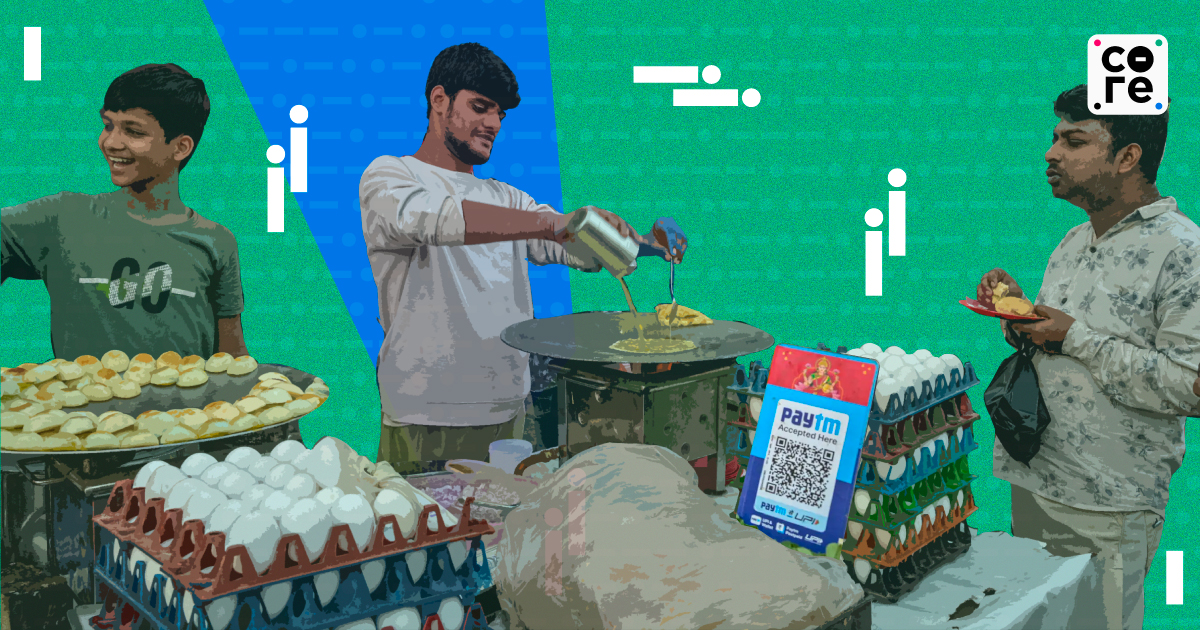
Why The West Hasn't Yet Adopted A UPI-Like Payment System
The essential nature of payments is very different in the West and a UPI-based payment does not work in their context.

India’s financial system and the adoption of the unified payments interface (UPI) have been widely celebrated. However, UPI-based transactions are not prevalent beyond India and that is because money moves very differently from the way it does here. In India, payments are largely cash-based even if it’s digitally paid whereas, in the West technology-based payments are also largely on credit.
“Abroad, tech payments are extremely evolved in the sense that they are as electronic as, say, UPI. But one can walk into a store and hand over a cheque, and the payee can scan that cheque and within 15 seconds get a confirmation whether the cheque is good or bad. We don’t have that in India,” S Ketharaman, former global business development for Oracle Financial Services Software Limited, told The Core.
The recent Reserve Bank of India (RBI) directive banning fintech major Paytm’s digital lending arm Paytm Payments Bank has created confusion over money transfers. The RBI’s restrictions on Paytm Payments Bank could ring the death knell on Paytm as well. Paytm wallet is used by most businesses, small to large, for transactions. The RBI directive bars one from depositing deposit money to Paytm Payments Bank Account/wallet after February 29.
Difference In Payments
In India, most transactions are peer-to-peer payments. Funds are transferred directly from one person's bank account to another person's bank account through cards or digital wallets. In the West, transactions are merchant payments. An establishment would avail the services of a merchant payment provider to be able to accept credit cards, debit cards, and other forms of payment from customers, the payment processor would deduct its fees from transactions and would transfer the rest to the establishment’s business bank account.
Since the essential nature of payments is very different in the West, a UPI-based payment does not work in that context. “In India, NEFT and IMPS transactions are also for P2P (person-to-person) payments. We have humongous amounts of small merchants. Typically, these payments in the Indian context are not even P2M (person-to-merchant), they are only P2P. NEFT has a delay, IMPS is real-time and is the rail on which UPI runs. Because of the popularity of UPI, we tend to attribute everything to UPI,” Ketharaman said.
As the name suggests UPI is only an interface and not the rail. The interface facilitates both inter-bank peer-to-peer and person-to-merchant transactions. Technically, it is possible to make payments for transactions through IMPS but it is a little more inconvenient than a payment via UPI. IMPS requires bank account details of the payee but UPI does not require the same. “Some banks are now allowing IMPS payments only basis mobile phone numbers. That also removes the traditional friction associated with IMPS,” he said.
Credit V/S Debit
Western countries typically have a lot more digital transactions. In the US, the total transaction value of digital payments is expected to have a compounded annual growth rate (CAGR) of 10.73% in 2024-2028. In Europe, it’s projected to grow at a CAGR of 8.81% in 2024-2028. In contrast, the Indian digital payments ecosystem is at a nascent stage. Total transaction value is expected to grow at a CAGR of 11.56% in 2024-2028. Despite handling a much larger volume of digital transactions, a UPI is still not popular in Western countries. But western countries have a higher penetration of credit cards. According to Ketharaman, the USA had 300% credit card penetration while the UK was well over 100%.
“When people are paying via UPI, it’s going out of their bank account, there is no deferred payment and as far as I know, no rewards. Credit cards support front protection, which by design UPI does not. In credit cards, bias is towards the consumers instead of merchants but in UPI it’s in favour of merchants. Technically, you cannot get fraud protection in UPI the way you can get in credit cards,” he said.
He also said that when countries get more benefits with credit cards, which have been used there for over 30-40 years there is very little need for such countries to adopt UPI.
The unfolding of the Paytm crisis has also resulted in people migrating to other platforms. As consumers now look for other choices, concerns remain over how easy it would be to migrate to other modes of payment. “In the case of the Paytm situation, there is no problem with the rail. IMPS is working, interface is working. A merchant who has a merchant account in Paytm Payments Bank to some other payment bank. The rest of the transactions are identical,” he said.
The essential nature of payments is very different in the West and a UPI-based payment does not work in their context.

